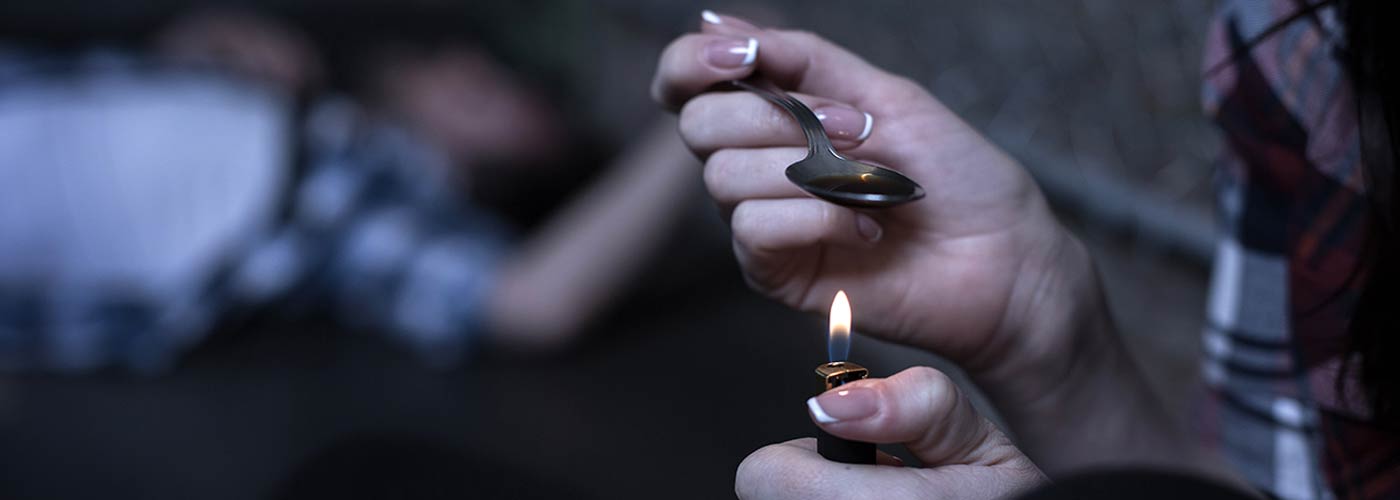Ambien is a benzodiazepine tranquilizer, commonly used to treat sleep-related disorders. It is considered a tranquilizer and can be extremely dangerous when taken in high doses. Heroin is an opioid narcotic, which – although technically a different classification of drug – has similar effects. Taking these two drugs simultaneously can result in serious complications. Those who mix Ambien and heroin put themselves at extremely high risk of overdose-related death. Specific cells within the brain are activated when the two drugs are mixed, resulting in abnormal drowsiness. When Ambien is taken alone it helps facilitate sleep, because it binds with the sleep-facilitating chemical GABA when it enters the brain. But when combined with another potent drug that affects the central nervous system, it can prove to be deadly.
Mixing a prescribed medication of any kind with another chemical substance is never a good idea. And of course, taking heroin – a highly illicit chemical substance – is never, ever a good idea. Some heroin addicts might take Ambien to increase the effects of their high. If you or anyone you know has been abusing heroin or taking Ambien other than as prescribed, it is crucial that professional addiction treatment is sought immediately.
Heroin Abuse and Addiction
Over the course of the past several years, rates of heroin abuse and addiction have increased significantly amongst both men and women of all ages, all ethnic backgrounds, and all social standings. The majority of heroin addictions start with an addiction to prescription painkillers. Those who don’t know where to get street drugs like heroin but are prone to addictive tendencies have a much easier time getting their hands on prescription medications. Predisposition to addiction is attributed to a number of factors, including (but not limited to) genetic factors, environmental factors, and pre-existing mental health disorders. If someone is born with addictive tendencies and has access to habit-forming medications, the chances are that they will begin to abuse whatever medications they have access to. They may have been prescribed pharmaceuticals for an existing disorder, or they may have found an unused or expired medication in a medicine cabinet at their friend’s or family’s house.
Once the existing “supply” runs out, those who have developed dependencies might look for a cheaper and more readily accessible alternative; in the case of painkiller addiction, this alternative is heroin. According to the Center for Disease Control, nearly 494,000 American adults grappled with heroin addiction in 2017. During this same year, 17,000 adults died of heroin-related deaths. On its own, heroin can be deadly. Mixing this drug with Ambien only increases the chances of death.
Ambien Abuse and Addiction
Those who take Ambien as prescribed generally take it to treat insomnia, a relatively common sleep disorder. For those who aren’t predisposed to addiction the risk of developing an Ambien dependence is fairly low. The drug can be habit-forming when abused, though those who take the drug as prescribed are generally safe. When taken as prescribed, Ambien can be extremely effective – when taken in combination with heroin, it can be deadly. If you believe that you or someone you know might be struggling with an Ambien addiction, there are several warning signs to look for. These include memory loss, nausea and vomiting, changes in appetite and sleep patterns, lack of coordination and serious mental health symptoms like paranoia, depression, and anxiety.
Those who take Ambien are at risk of side effects like sleepwalking and hallucinations, even when the medication is taken as prescribed. It is far more common for heroin addicts to begin taking Ambien than it is for Ambien abusers to seek heroin, seeing as Ambien enhances the high that heroin provides. While the feelings of sedation and temporary elation may increase briefly, combining both substances can be a dangerous game and can easily push the physical body over the edge. As mentioned previously, those who are combining both drugs should seek professional care immediately. Please feel free to reach out with any questions or concerns you may have – we’re here to help.


